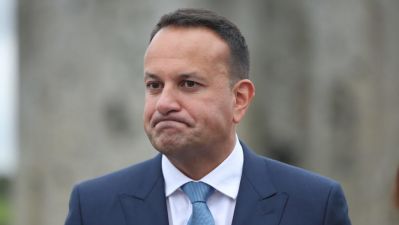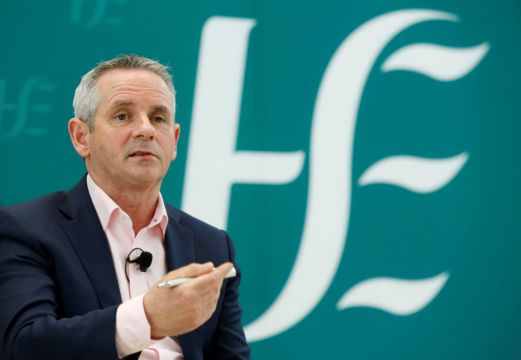The HSE is not calling for the reintroduction of restrictions, but there is a need for everyone to look at their own behaviour, HSE chief executive Paul Reid has said.
Speaking on RTÉ Radio’s Today with Claire Byrne show, Mr Reid said he was concerned about rising numbers. He said hospitals are coping, but that means there is a trade-off leading to the cancellation of elective care.
All the indications were that the figures were likely to increase to 4,000, he said.
For every 1,000 cases, this meant 35 hospitalisations. At present there are 463 Covid cases in hospital and 90 in ICU.
Mr Reid explained that of the patients in ICU, 50 per cent were on invasive ventilation. There were a further 250-300 patients on “enhanced supports” and others in High Dependency Units or wards with supervised support.
“There are some extremely sick people in hospital.”
Winter
Mr Reid added that Children’s Health Ireland had reported an increase from 8,500 emergency admissions in 2019 for the first week in October to 11,600 for the same period in 2021. That was primarily due to respiratory illnesses, not Covid he said, adding it was an indication of the winter season.
The Winter Plan for the health service had commenced, although negotiations were ongoing in relation to its funding.“That’s a process we’re working through,” Mr Reid said.
The 463 Covid patients in hospital were having a disproportionate impact on the health system, he said, adding that the 90 ICU beds currently being occupied by Covid patients could have been used for surgeries.
There were increased numbers of people over the age of 75 attending emergency departments and generally, 25 per cent of admissions would be hospitalised, rising to 50 per cent for the over 75s.
GPs were under pressure which is leading to delayed care and frailty issues, Mr Reid added, but this issue was going to be addressed through integrated teams working in the community, he said.
Staffing
Absenteeism levels in the health service were normally at 4.5-5 per cent, said Mr Reid, at present there was a Covid absenteeism rate of 2.7 per cent, separate from the usual levels.
Although 11,000 extra staff had been taken on since the pandemic, the high level of absenteeism was putting pressure on the health service.
The health service’s workforce was “tremendously resilient” and, although exhausted, they had come through four lockdowns and a cyberattack.

The booster campaign for healthcare workers would commence this weekend, Mr Reid confirmed, and would carry on into next year.
When asked about comments by the Tánaiste Leo Varadkar about a new tablet to treat Covid and his call on the European Medicines Agency for its approval, Mr Reid said that the HSE’s chief clinical officer and the chief medical officer would lead on the issue, but that it was a clinical issue.
On the issue of vaccine hesitancy, Mr Reid said steady progress was being made, stating 1,500-2,000 people were registering for the vaccine each day, while a range of groups and embassies are working to address the concerns of some communities.
Ultimately the message was “if you’re unvaccinated, you’re at high risk” he said. “Please come forward, it’s never too late. We will support you in the vaccination process.”







